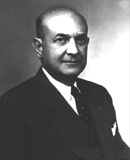
DIE HARD is the perfect Christmas Movie...for understanding how Americans view international politics
[THREAD]
[THREAD]

To be clear: the movie doesn't capture ALL aspects of international politics (especially IR theory)
For that, you need to watch ID4!
For that, you need to watch ID4!
https://twitter.com/ProfPaulPoast/status/1279379201540468737
But the movie expertly captures the anxieties associated with US "global leadership" during the late Cold War era.
Those are
-- relative economic decline
-- Vietnam syndrome
-- Terrorism
Let's look at each one (and what DIE HARD has to say about them)
Those are
-- relative economic decline
-- Vietnam syndrome
-- Terrorism
Let's look at each one (and what DIE HARD has to say about them)
- RELATIVE ECONOMIC DECLINE: The 1980s was the peak of Anti-Japanese economic anxiety in the United States.
Starting with the emergence of fuel-efficient Japanese automobiles in the 1970s (following the oil shocks), Japan was perceived as the emerging "economic super power". 

...or, near the end of the decade, this @JamesFallows @TheAtlantic article
theatlantic.com/magazine/archi…
theatlantic.com/magazine/archi…
An excellent summary of "Japanophobia" in the 1980s, and the racism underpinning it, is offered by MJ Heale in this @jnlamstudies piece
cambridge.org/core/journals/…
cambridge.org/core/journals/…
In DIE HARD, "Nakatomi tower" owned by the Japanese Nakatomi Corporation -- the setting of the entire film -- symbolizes all of this. 

Indeed, it is notable that the John McClane's (the hero) personal life is being undone by his inability to handle that his wife, Holly, took a job with this Japanese company.
VIETNAM SYNDROME: The film alludes to the folly of American militarism.
The phrase "Vietnam Syndrome" is in reference to the Us losing in Vietnam after a long, protracted conflict (US combat troops withdrew in 1973)
voanews.com/usa/day-histor…
voanews.com/usa/day-histor…
The "syndrome" is an aversion in the American public to military intervention
brookings.edu/blog/up-front/…
brookings.edu/blog/up-front/…
Of course, this hadn't stopped the US from Using military forces. But the scale had been limited...
politico.com/story/2017/10/…
politico.com/story/2017/10/…
...or entailed heavy proxy support (as captured in "Charlie Wilson's War")...
...well, unless you don't count John Rambo (Note: Rambo III was released the same year as DIE HARD)
In Die Hard, American government/military hubris is captured by the FBI agents showing up...
...and they are keen to use force (even if it means "collateral damage")
The uber-bro of the two agents references "Saigon" when they are heading to the tower to take out the terrorists
But like the American experience with Saigon itself, it doesn't end well for them
- TERRORISM: The 1980s witnessed the heightened concern over international terrorism as a security threat.
Incidents and fatalities of international terrorism had been rising since the early 1970s (at least according to the data on such incidents, which can be seen here: ourworldindata.org/terrorism)
The emergence of terrorism was challenging for American hegemony because, unlike the predictability of the Soviet Threat (i.e. missile balance or tank placements), terrorism could strike from anywhere without warning.
In DIE HARD, it's notable that the main "terrorist", Hans Gruber, comes from West Germany (associated with the Volksfrei movement), a US @NATO ally: perhaps capturing concerns about the complexities of US Cold War alliances. 

And he drops references to other terrorist groups: New Provo front, Liberte de Quebec, and Asian Dawn
But it turns out that he's just a thief...an exceptional thief!
Making Gruber a thief rather than a terrorist is, in a sense, cathartic to Americans: his motivation is money, which seems more understandable, not ideological, which is scarier.
Though, as Jack Gibbs wrote in @ASR_Journal at the time, drawing a distinction between terrorism and robbery is obscure.
jstor.org/stable/2095609
jstor.org/stable/2095609

AND YET, despite exploring these anxieities, DIE HARD, through it's main character, captures the pop-culture ethos of "American exceptionalism": John Wayne, Rambo, Marshal Dillon, & Roy Rogers
Of course, DIE HARD almost parodied these ideas, but held back from going full parody. That would have to wait for @Trey_Parker_, @MatthewRicStone, & Pam Brady
So if you want to give your students (or yourself) a perspective on the anxieties associated with "global leadership", you can do worse than have them watch the "Quintessential American Action Movie"
[END]
theguardian.com/film/2018/jul/…
[END]
theguardian.com/film/2018/jul/…
• • •
Missing some Tweet in this thread? You can try to
force a refresh










